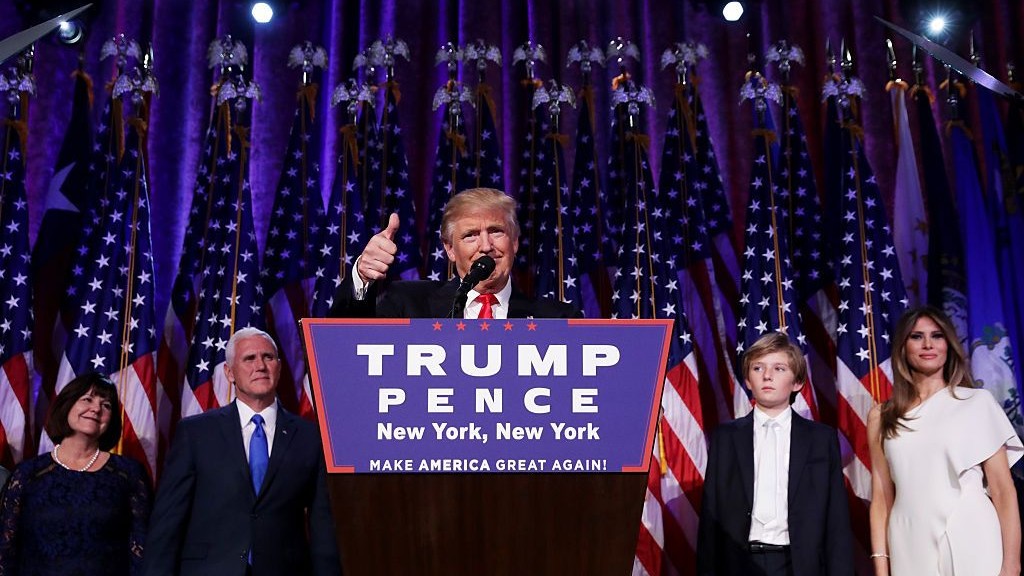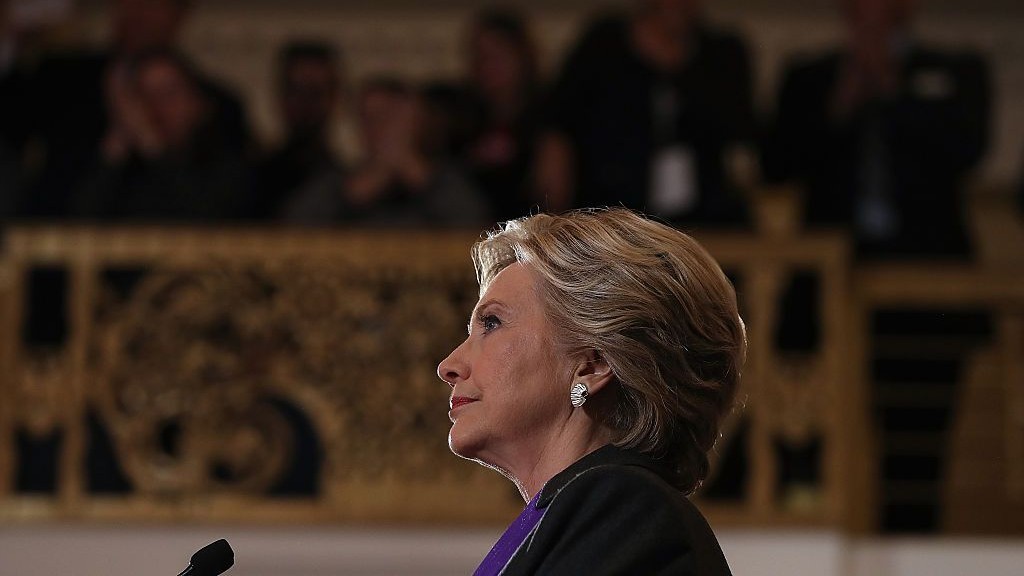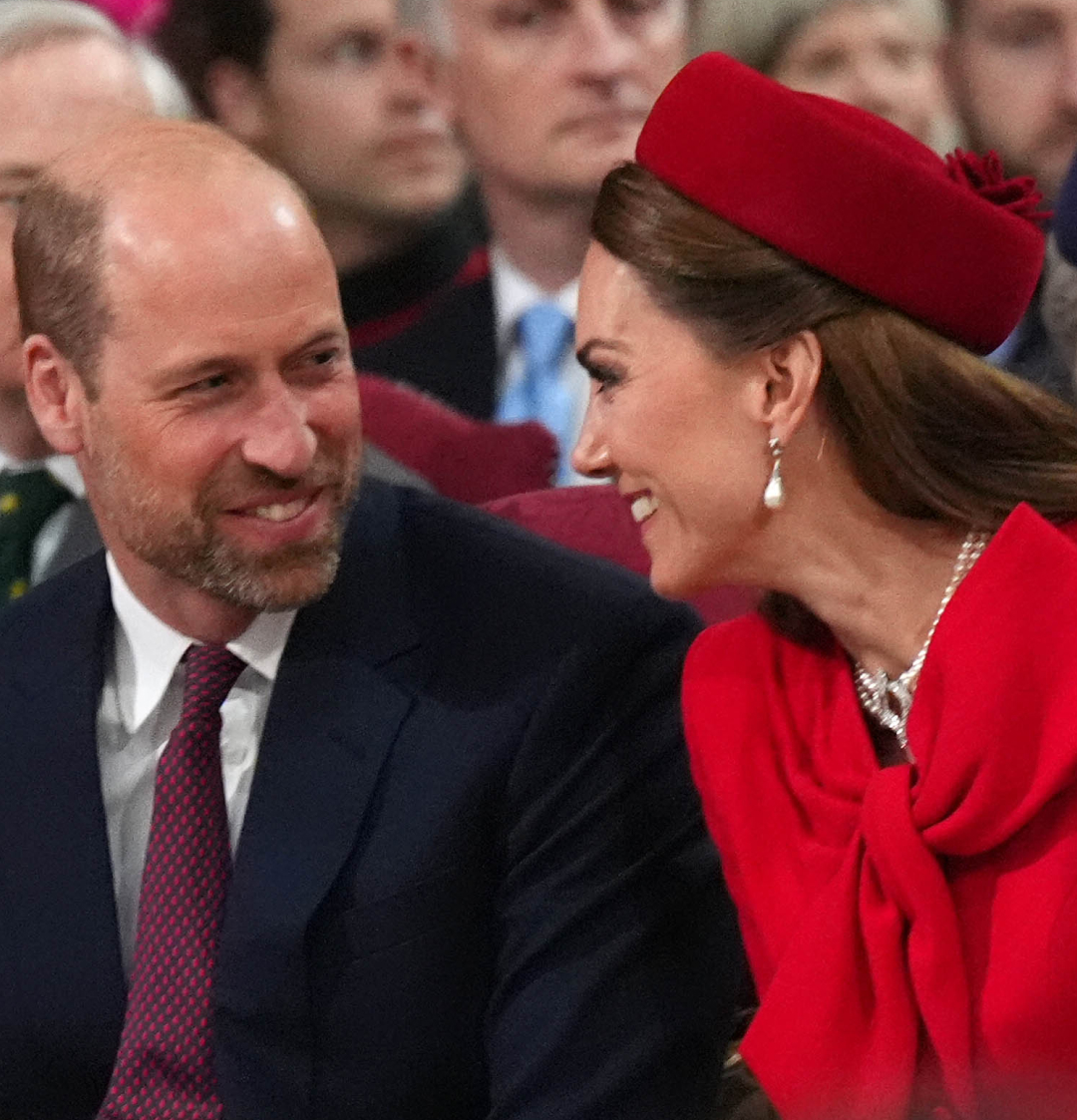3 Simple Reasons Trump Won the Presidency—and What We Need to Do Next
As explained by a British ally who just endured Brexit.

The most widespread reaction on my side of the pond to the 2016 U.S. presidential election has been: "What have they done?"
A lot of people over here in the U.K. and beyond are going to credit the election results with America's resolve to be willingly foolish in the face of really big decisions. (After all, your country elected George W. Bush in 2001 and has persistently failed to tackle the issue of gun violence in the face of 142 school shootings since 2013.) And, on top of that, other—or perhaps the same—people are going to tell you this electoral outcome didn't have anything to do with the fact that Hillary Clinton is a woman.
In both cases, they'd be wrong.

The Real Landscape of Women and Leadership
As of February 2016, a mere 19 percent of the House of Representatives in the U.S. are women and only 20 percent of the senate.
A grand total of 48 women have held Cabinet positions in the history of America.
As of April 2016, women still hold less than 4 percent of CEO positions at S&P 500 Index companies.
Considering the demand for women's suffrage began in America some time before the 1840s, this progress is pretty minimal—particularly if we look ahead at what can feasibly be achieved for women in the next century. This we know: Every woman in America who has made her way into a leadership position by forcefully tearing through the seams of an enduringly patriarchal tapestry—and that tapestry is alive and well in 2016.
Stay In The Know
Get exclusive access to fashion and beauty trends, hot-off-the-press celebrity news, and more.

The "Likable" Problem
As the narrative goes, the election loss was not about Hillary being a woman, but about her being the wrong woman. But a cursory glance at the America political system still reveals a male-centered reality—in language and in practice.
The President is the "Commander in Chief," a militaristic role still more characterized by hyper-masculine posturing and "Land of The Free, Home of The Brave" war cries, than it is strategy, peacekeeping, and compassion.
Non-veteran candidates have historically struggled to gain traction in American elections, because "serving the country" has become so synonymous with literally fighting for it. Just this year Marco Rubio, Chris Christie, Martin O'Malley, Bernie Sanders—Republican and Democrat candidates alike—faced criticism for their lack of military background.
Interestingly, Hillary famously voted in favor of the invasion of Iraq (which she later says she regrets), a tough stance which ought to have allied her with the warmonger Presidents that have gone before her.
But her vote had the adverse effect—it alienated people, arguably, because it didn't sit well with people's vision of her as wife, mother, and First Lady. Perhaps most tellingly, her vote and regrets underscored her as a human who changes her mind with revealing evidence.
This isn't the first time Hillary's "personality" has been deemed problematic for voters. Having had her legal training in an era of pronounced misogyny, she learned to be tough and impenetrable as a coping mechanism—but it was exactly this coping mechanism, which has carried her through a thorny professional life, which 2016 voters have proclaimed "unlikeable."
To be clear, Donald Trump is not "likable," but he's a man—he doesn't have to be.

The Plight of Middle America
We know who ferried Trump into office—and his successful win falls along clear, racial and socioeconomic lines:
Let us be crystal fucking clear who is responsible. pic.twitter.com/aaj3nkvdKONovember 9, 2016
But this essential question remains: how did they get there?
The vast swathe of Middle American states that voted for Trump is brimming with people who have suffered, often completely voicelessly, at the hands of a country that has failed to give them significant access to education, to bring them convincingly above the poverty line, to effectively address racial tensions, and to bring an end to the terrorism (both domestically and abroad).
One can only assume that the women who came out in droves to vote Trump did so in a desperate attempt to preserve what they know—to maintain what little security they felt Trump could offer them in a world that, recently, hasn't offered very much. Quite literally, this is a demographic that has struggled to keep food on the table, and perhaps voted to do so even at the cost of their sexual and reproductive rights. That says a lot about the status of the United States of America.
We must look first to the system that has failed them over and over again.
This Problem Now Belongs to All of Us
Americans, do make the mistake of thinking you are alone in your future. If the Brexit decision in the UK taught us anything this year, it's that discontent, desperate suspicion, fear-mongering, and panicked decision-making is widespread and dangerous.
Just this morning, right wing French politician Marie Le Pen startled all of us with her advocacy of the Trump rein, announcing her plans for France to follow suit. Marie Le Pen's father, founder of Front National, Jean-Marie Le Pen proclaimed: "Today, the United States, tomorrow, France. Bravo!," with the party's Vice President claiming: "Their world is collapsing. Ours is being built."
The global challenge we now face is much bigger than Hillary's likability—it's unbridled suspicion of women, of different ethnicities, of terrorism, of anything identifiably "other." If not harnessed, this growing distrust could be our international undoing.
And we all have a responsibility to make sure that doesn't happen.
Follow Marie Claire on Facebook for the latest celeb news, beauty tips, fascinating reads, livestream video, and more.
-
 Prince William and Kate Middleton "Continue to Push Boundaries"
Prince William and Kate Middleton "Continue to Push Boundaries""They definitely have a different dynamic compared to other royal couples."
By Kristin Contino
-
 I'm Done Gatekeeping: Adidas' Activewear Is Just as Cool as Its Shoe Selection
I'm Done Gatekeeping: Adidas' Activewear Is Just as Cool as Its Shoe SelectionUp in the gym just working on my fitness.
By Kaitlin Clapinski
-
 All Stylish Women Will Be Wearing These Shoes by Summer
All Stylish Women Will Be Wearing These Shoes by SummerGet a head start.
By Emma Childs
-
 By Going Full "Trad Wife," Republicans Are Saying the Quiet Part Out Loud
By Going Full "Trad Wife," Republicans Are Saying the Quiet Part Out LoudSen. Katie Britt was picked to deliver the State of the Union rebuttal "as a housewife, not just a senator," one GOP lawmaker said.
By Danielle Campoamor
-
 36 Ways Women Still Aren't Equal to Men
36 Ways Women Still Aren't Equal to MenFeatures It's just one of the many ways women still aren't equal to men.
By Brooke Knappenberger
-
 How New York's First Female Governor Plans to Fight for Women If Reelected
How New York's First Female Governor Plans to Fight for Women If ReelectedKathy Hochul twice came to power because men resigned amid sexual harassment scandals. Here, how she's leading differently.
By Emily Tisch Sussman
-
 Why the 2022 Midterm Elections Are So Critical
Why the 2022 Midterm Elections Are So CriticalAs we blaze through a highly charged midterm election season, Swing Left Executive Director Yasmin Radjy highlights rising stars who are fighting for women’s rights.
By Tanya Benedicto Klich
-
 Tammy Duckworth: 'I’m Mad as Hell' About the Lack of Federal Action on Gun Safety
Tammy Duckworth: 'I’m Mad as Hell' About the Lack of Federal Action on Gun SafetyThe Illinois Senator won't let the memory of the Highland Park shooting just fade away.
By Sen. Tammy Duckworth
-
 Roe Is Gone. We Have to Keep Fighting.
Roe Is Gone. We Have to Keep Fighting.How To Democracy always offers a path forward even when we feel thrust into the past.
By Beth Silvers and Sarah Stewart Holland, hosts of Pantsuit Politics Podcast
-
 Current Gun Control Policies Are Ableist
Current Gun Control Policies Are Ableist"Solutions" like active shooter drills and arming more people put the rights of gun owners above the rights of America's most vulnerable, including disabled people like myself.
By Heather Tomko
-
 The Supreme Court's Mississippi Abortion Rights Case: What to Know
The Supreme Court's Mississippi Abortion Rights Case: What to KnowThe case could threaten Roe v. Wade.
By Megan DiTrolio